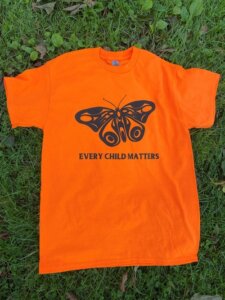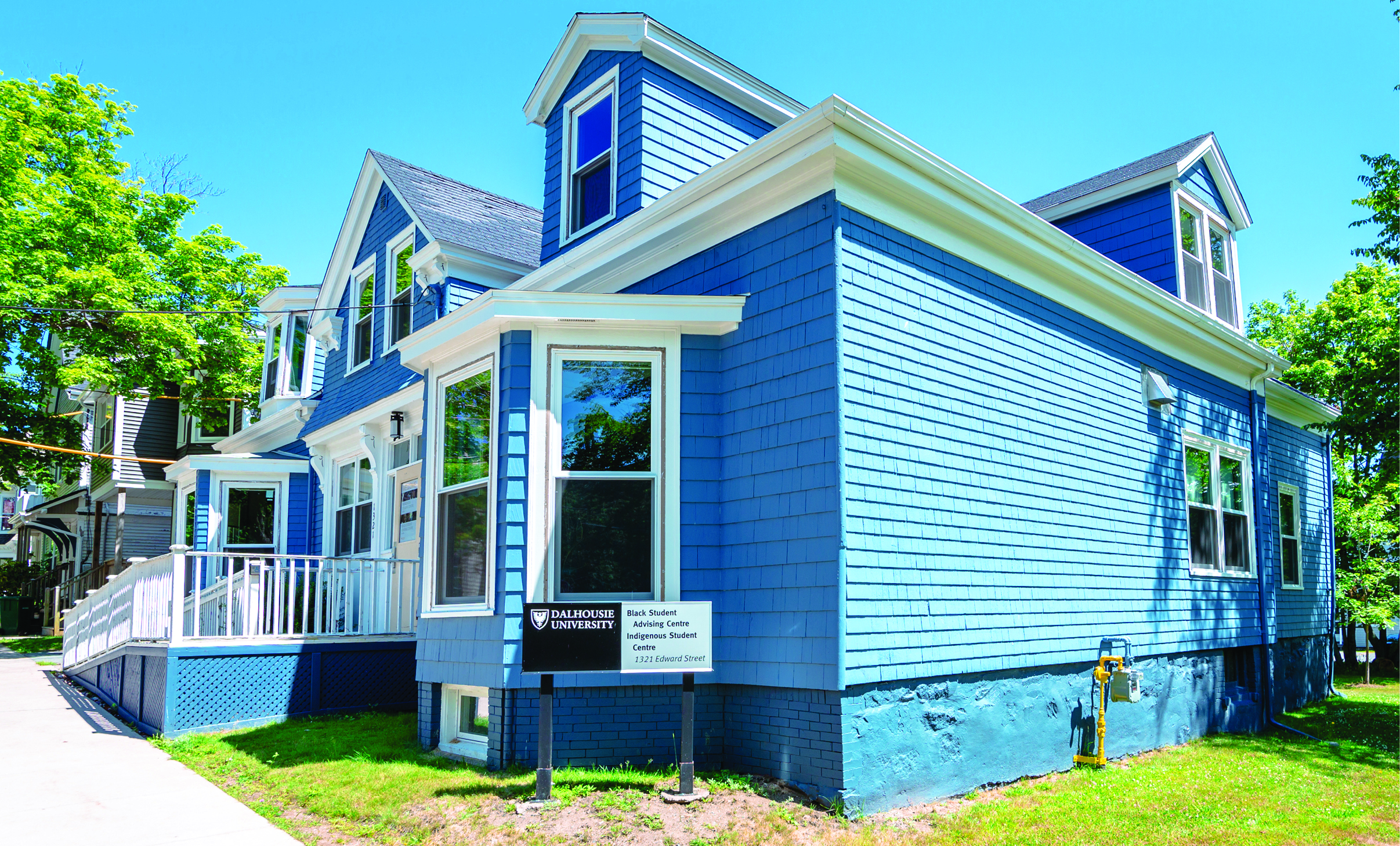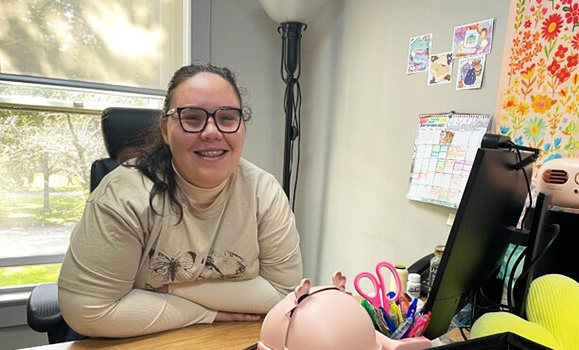September can be a tough time for a lot of Indigenous folks, especially those in academic settings. Amidst the hustle and bustle of back to school, painful memories of children forced to attend residential schools can resurface.Ěý
Kayla Bernard (BScR’21)Ěýis an advisor at Dal’s Indigenous Student Centre (ISC). It’s mid-September and there are piles of bright orange T-shirts all around the centre in preparation for Orange Shirt Day (Sept. 30). “We would rather have students and faculty buy one and know that the money is going to actual Indigenous folks versus [a big box retailer],” Bernard says. “The money we collect is going to directly benefit local Indigenous youth.”Ěý
Orange Shirt Day
The 2023 ISC Orange Shirt, designed and sold by KitKat Creations (owned by Kayla Bernard) and Goldfinch Beads (owned by Kim Lickers), is available for anyone to purchase.
Started in 2013 by residential school Survivor Phyllis Webstad, Orange Shirt Day is a nod to six-year-old Webstad. In preparation for her first day of school in 1973, Webstad picked out a bright orange shirt to wear to St. Joseph’s Mission Residential School in B.C. The shirt, along with many other tokens of home, was taken upon her arrival. She wrote twoĚýĚýabout the experience. People now wear orange on the National Day of Truth and Reconciliation to raise awareness of the generational impacts of residential schools, and to promote the concept “Every Child Matters.”Ěý
 Bernard hopes anyone who buys a shirt will consider wearing it past the 30th. She says wearing an orange shirt is a great first step into meaningful activism, but “it doesn’t have to be a one-time thing. It’s almost more meaningful when I see folks wearing them after [Sept. 30].”Ěý
Bernard hopes anyone who buys a shirt will consider wearing it past the 30th. She says wearing an orange shirt is a great first step into meaningful activism, but “it doesn’t have to be a one-time thing. It’s almost more meaningful when I see folks wearing them after [Sept. 30].”Ěý
Shirts are $20 andĚý, or to pick up directly at Bernard’s office in the ISC on Edward Street.
Campus life
Bernard’s office might just be the most cheerful one on campus. When I arrive on a beautiful fall day for our interview, she immediately notices my hoarse voice and begins rooting around in her purse for a cough drop.ĚýĚý
“That’s just who I am, it’s just my culture,” she says with a laugh. “The Mi’kmaq are very giving, and I am always working to make people feel comfortable in here.” Sunlight streams in the big window behind her, and the whole place smells faintly like smudging smoke – a mixture of sweetgrass, sage, cedar, and ceremonial tobacco. It’s warm and welcoming, and so is Bernard.Ěý
A homey atmosphere is exactly what Bernard is aiming for. She knows moving onto campus is a big step for many students, but it can be even bigger for Indigenous students, especially those coming from smaller, tight-knit communities. Bernard says the ISC allows students to ease into the new school year by not overloading them with programs and events right away. “We try not to pack too much into September and give folks a chance to just sit,” she says. “We help people with some homesickness and just let them know that they’re meant to be here. It’s so hard, but they have a community here that is ready to support them.”
 The Indigenous Student Centre shares a building with the Black Student Advising Centre at 1321 Edward Street on Dal’s Studley Campus.
The Indigenous Student Centre shares a building with the Black Student Advising Centre at 1321 Edward Street on Dal’s Studley Campus.
Ěý
Luski, music, pop and friends
Bernard, granddaughter of residential school Survivors herself, practices what she preaches with a blend of traditional leisure and modern self-care. She dances the women’s Eastern Traditional Powwow dance and enjoys beadwork, but she also loves playing video games and watching TV. Her childhood involvement in Girl Guides informed her love of planning and facilitating programs. She is a big advocate for recreation and leisure as a form of mental health therapy.ĚýĚý
As of this year, Bernard is back in the classroom, studying for her Master of Leisure Studies. Her research focus is Indigenous leisure.
In addition to the structured programming (like Beading Circle Fridays), organic gatherings spring up all the time at the ISC. Bernard says a welcome barbecue this fall quickly turned into a kitchen party. “I was making luskinikn, which is a Mi’kmaw bread, in the kitchen. And it was so funny — as soon as I started cooking, they just started gathering. They were all talking and drinking pop and it just felt just like I was at home in my grandma’s kitchen,” Bernard says. “They ate all the luski and I had to make more, but that was completely fine. I was just so happy that they were all connecting.”
Connection and support are pillars of the ISC and Bernard’s work. She wants students to know that if her door is not literally open, her inbox always is. Even if all they need is a cough drop. Ěý
If you or someone you know needs support
Former residential school students can callĚý1-866-925-4419Ěýfor emotional crisis referral services and information on other health supports from the Government of Canada. Indigenous peoples across Canada can also accessĚýĚý24 hours a day, 7 days a week for counselling and crisis intervention.
Call the toll-free Help Line atĚý1-855-242-3310Ěýor connect to theĚýĚý(please use Google Chrome).

